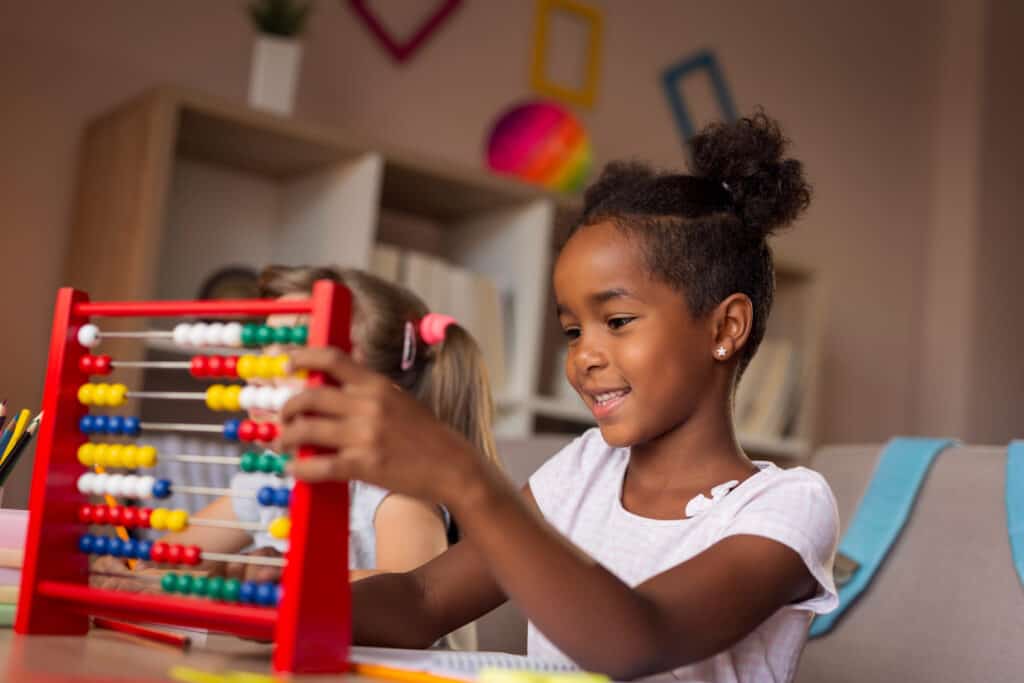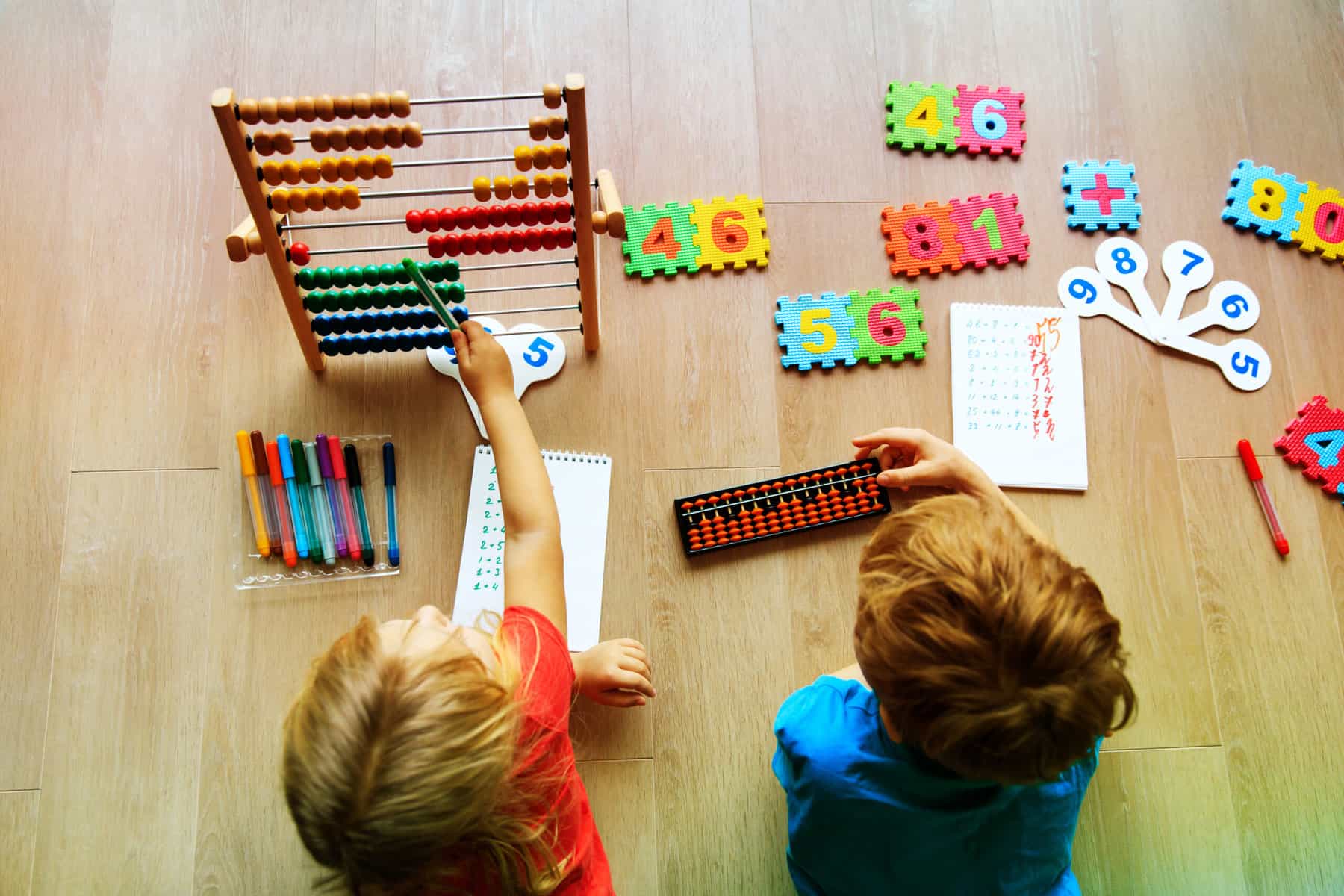Choosing the Best Math Curriculum for Dyscalculia
Also known as “math dyslexia,” dyscalculia is a learning disorder that affects a person’s ability to perform mathematical tasks. People with dyscalculia process numbers differently, and may require extra support to build mathematical skills. With the right support and learning materials, students with dyscalculia can improve their math skills and thrive academically.
At Miacademy, we aim to empower parents with the knowledge and resources to create brighter mathematical futures. If your student struggles with dyscalculia, homeschooling can offer an individualized math curriculum that meets their unique learning needs.
How does dyscalculia affect learning?
Dyscalculia causes a difference in brain activity that interferes with identifying and understanding numbers. Students with dyscalculia often need specialized instruction and accommodations, especially in math, to ensure academic success. Students with dyscalculia may require support with…
- Understanding mathematical concepts, such as number values, place value, and operations like addition, subtraction, multiplication, and division
- Strengthening working memory, such as recalling multiplication tables or division rules
- Understanding numerical relationships between fractions, decimals, and percentages
- Demonstrating number sense, such as counting, grouping, estimating, and recognizing number patterns
- Using spatial reasoning and mental math, such as visualizing numbers on a number line or in a graph
- Telling time and managing money
- Completing tasks that require numerical sequencing, such as reading a clock or following steps in a recipe
- Interpreting word problems and translating them into mathematical equations
- Organizing math work, such as solving equations step-by-step
- Perceiving mathematical symbols, such as discerning between “+” and “×” or “–” and “÷”
Dyscalculia is a little bit different for everyone. Someone with dyscalculia may or may not experience everything listed above. In addition, it is also common for neurotypical children to experience some of the symptoms listed. If you think your student may be dyscalculic, your child’s healthcare provider can help you with next steps toward a diagnosis.
Finding The Best Dyscalculia Math Curriculum
Homeschooling a child with dyscalculia can help them build confidence in their abilities and ensure success. When considering a curriculum’s accommodations for dyscalculia, ask yourself whether the program…
- Provides individualized instruction to support learners who struggle with math
- Offers alternative methods of instruction, such as multisensory learning, visual aids, or manipulatives
- Provides ongoing assessments and progress monitoring to track the student’s learning and adjust instruction as needed
- Has a flexible pace and structure that can accommodate the student’s individual learning needs and preferences
- Incorporates real-world applications and practical examples to help the student understand the relevance and value of math concepts
- Provides practice opportunities in a variety of contexts, such as games, puzzles, projects, or other problem-solving simulations
- Encourages the student to build confidence in their math abilities and offers strategies for managing math-related anxiety
Finally, be sure to choose a homeschool program for dyscalculia that accommodates both your homeschool style and your child’s needs.

Teaching Math to Students with Dyscalculia
When teaching math to students with dyscalculia, it is essential to maintain a patient and adaptable approach. Many common teaching approaches are not as effective for learners with dyscalculia, so remaining flexible can help create a supportive learning environment.
Tips for Teaching Elementary Math to Students with Dyscalculia
- Use hands-on activities and manipulatives to help students develop a concrete understanding of math concepts.
- Break down tasks into smaller, more manageable steps, and provide plenty of opportunities for practice and repetition.
- Incorporate multisensory techniques, such as using music, movement, and visual aids, to engage different learning modalities.
Tips for Teaching Middle School Math to Students with Dyscalculia
- Provide clear, concise instructions and examples for each new math concept.
- Encourage students to use visual aids, such as graphs and charts, to help them organize and understand information.
- Use real-life scenarios to help students see the relevance of math in everyday situations.
How Miacademy Can Help Students with Dyscalculia
Miacademy’s accredited curriculum can help children with dyscalculia learn math and build their skills as they grow. Our homeschool math curriculum for dyscalculia supports students by…
- Offering a high quality, adaptable curriculum. Miacademy provides a solid math curriculum that adapts to students’ needs. This allows them to practice concepts until mastered and to feel engaged in their learning.
- Focusing on student-centered learning. Miacademy emphasizes the “why” and not just the “how” in teaching math. This helps students build on their existing foundation of mathematical principles and build confidence in their abilities.
- Cultivating a positive relationship with math. Miacademy encourages a growth mindset, provides ample time for concept practice without pressure, and focuses on concept mastery. We help students create a positive relationship with math and manage anxiety through our supportive and self-paced approach.
- Providing a customizable learning experience. Miacademy is completely customizable, so your student can enjoy all the freedom and flexibility that students with dyscalculia need to thrive.
- Integrating real-world applications. Miacademy offers plenty of opportunities for students to apply their knowledge to real-world situations, making math more tangible for students with math learning disabilities.
Start Homeschooling a Child with Dyscalculia
With the right tools, support, and curriculum, homeschooling a child with dyscalculia can be a rewarding and successful experience. By nurturing their strengths, reaching for their goals, and fostering a positive relationship with math, you can provide the support your student needs to thrive.
Miacademy’s accredited online math curriculum provides benefits to both parents and students! From engaging videos and activities, to our safe, moderated Community and powerful parent tools, Miacademy has something that every learner can enjoy!
If you have any questions about how Miacademy can work for you, please feel free to reach out to our friendly customer service agents! They’ll be happy to help you find the answers you need.
FAQ:
How do I teach my child math with dyscalculia?
Teaching math to a child with dyscalculia can be challenging, but there are many strategies and resources that can help. For example, you can use multisensory techniques, break concepts down, create practice opportunities, and reinforce topics. It is also important to focus on the student’s strengths and to praise their efforts.
What is the best math program for dyscalculia?
Look for a program that is designed to meet the specific needs of students with learning differences. The program should provide individualized instruction using evidence-based techniques to help the student develop foundational math skills and progress to more complex concepts.
Published 3/25/2024
